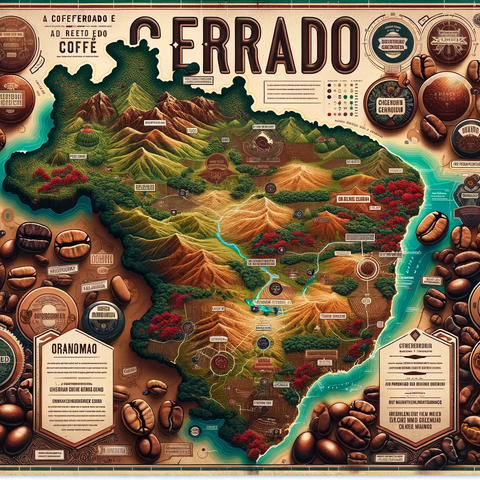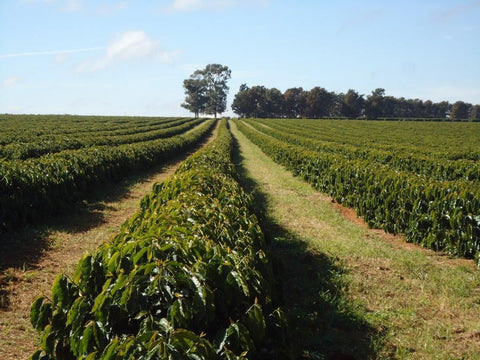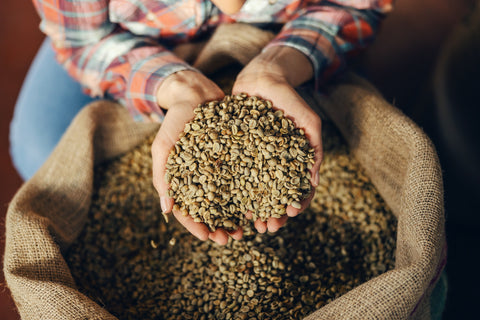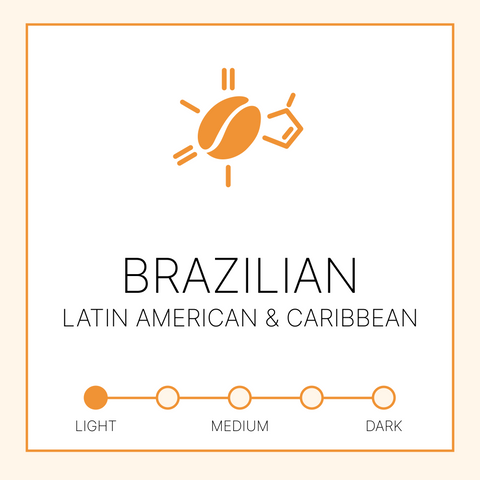
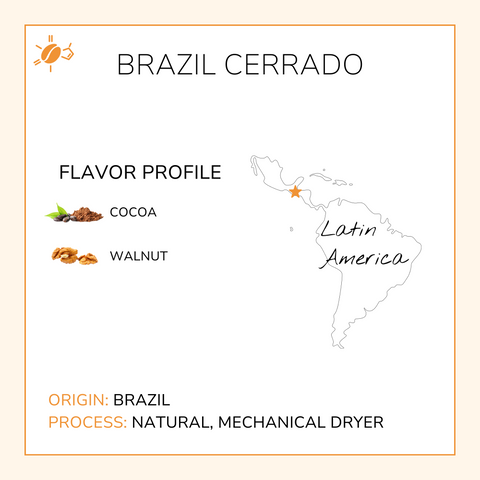
Brazilian Roast
Roast Quick Facts
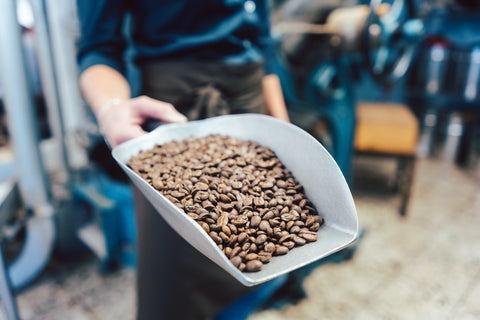
🔬 Under The Microscope
Roaster Notes:
Coffee from Cerrado, Brazil, boasts a rich, full-bodied profile with a smooth, velvety texture. It features a delightful balance of sweet and nutty flavors, highlighted by chocolatey undertones and subtle hints of caramel. The medium acidity complements its deep, earthy aroma, making it a captivating choice for coffee enthusiasts.
Country of Origin:
Brazil
Best Brewing Method:
Drip
Origin of The Beans
Where does Brazilian Roast's beans come from?The Cerrado region in Brazil, renowned for its coffee production, is characterized by its vast savanna landscapes, marked by rolling hills and rich, well-drained soils. This area experiences a distinctive dry and wet seasonal pattern, ideal for coffee cultivation. The altitude, typically ranging from 800 to 1,300 meters, contributes to the development of coffee beans with unique flavor profiles, often described as nutty and chocolaty with a full-bodied richness. The Cerrado's coffee is prized globally for its consistent quality and delightful taste.
The FarmIn Brazil's Cerrado region, a tapestry of coffee farms stretches over 175,000 hectares. Home to 4,500 growers, these farms are nestled in a landscape known for its rich soil and ideal climate for coffee cultivation. Here, rows of coffee plants bask under the Brazilian sun, with farmers diligently tending to the crops, ensuring the beans' quality. This area is a vital hub for Brazilian coffee production, celebrated for its unique flavor profiles and sustainable farming practices.
Process & HarvestNatural processed coffee involves sun-drying cherries whole, enhancing sweetness and fruit flavors. Mechanical dryer processed coffee uses machines for faster drying, ensuring consistency and reducing weather reliance, but often with less distinct flavors.
